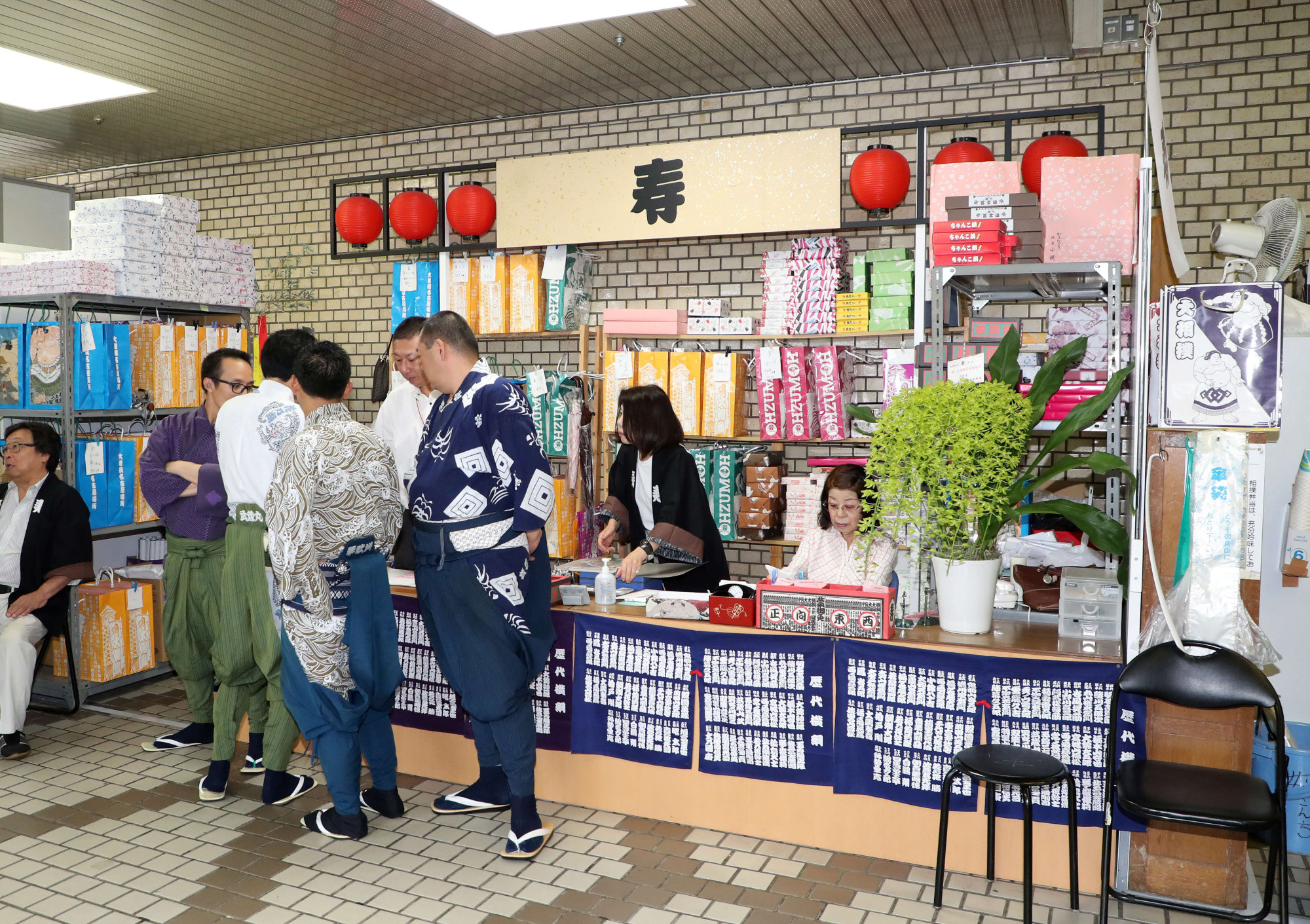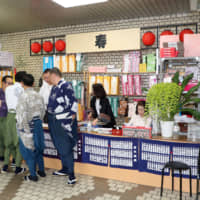There are many ways to purchase sumo tickets.
As with other sports, phone or online sales, as well as specialized ticket agents account for a large proportion of seats sold.
The best seats in the house at five of the six yearly Grand Sumo tournaments, however, are held by the cha-ya (teahouses.)
Officially known as Sumo Services and now under the control of the Japaan Sumo Association, the cha-ya were originally independent teahouses that sold tickets and refreshments to their customers.
That remains their primary purpose, but as well as food they also offer gift packages that include items unavailable at regular souvenir stalls at Ryogoku Kokugikan and elsewhere.
Most cha-ya seats go to regular customers who have agreements in place with the teahouses to buy tickets to every tournaments for a number of years. Those renewable deals essentially make cha-ya seats akin to season tickets in other sports that are passed down through the generations.
The much sought after ringside seats are virtually unattainable by anyone without a longstanding relationship.
There are currently 20 teahouses in Tokyo and during tournaments their stalls line one of the entrances to the Kokugikan.
Osaka has eight cha-ya and there are three in Nagoya. The November tournament in Fukuoka is the only meet without a teahouse.
Attendants (called dekata) dressed in attire that resembles a yobidashi (ring announcer), guide patrons to their seats and supply them with refreshments. Theirs is one of the rare professions in Japan that expects a tip, with ¥2,000 being the standard amount.
Takasago-ya is the most prestigious teahouse. It was established in 1887 by the wife of a sandanme division wrestler by the name of Hanashobu. It's not the oldest, though. That title goes to Nishikawa-ya, which got its start in 1818.




















With your current subscription plan you can comment on stories. However, before writing your first comment, please create a display name in the Profile section of your subscriber account page.